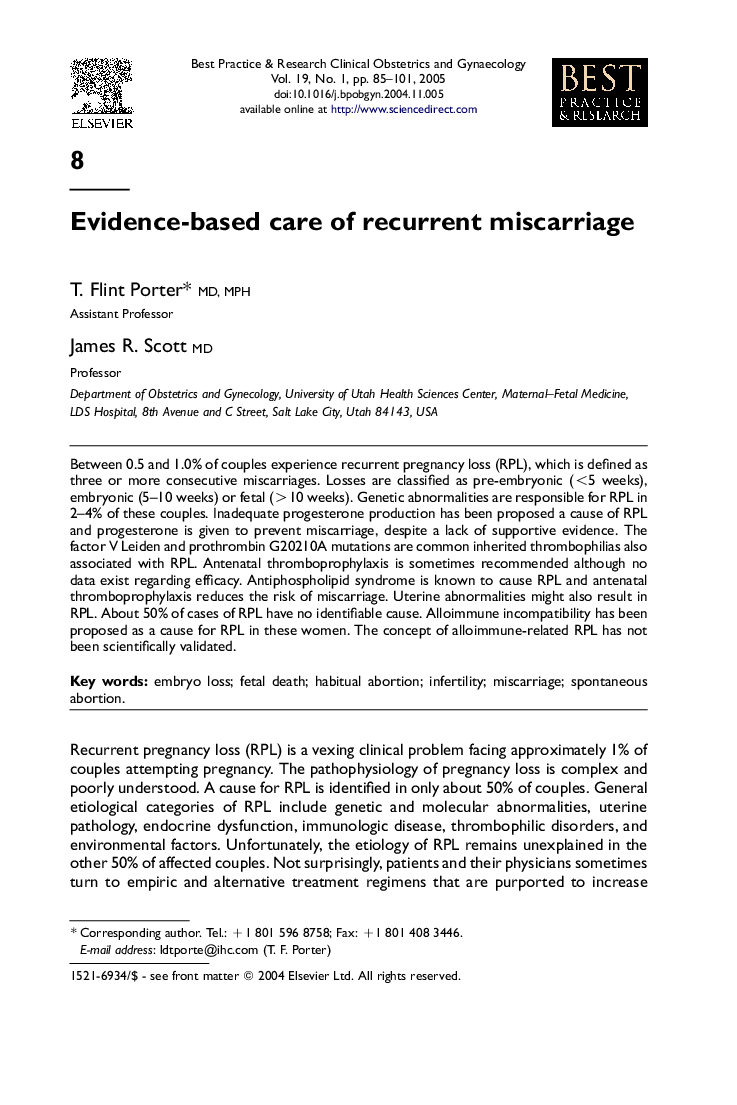| Article ID | Journal | Published Year | Pages | File Type |
|---|---|---|---|---|
| 9315764 | Best Practice & Research Clinical Obstetrics & Gynaecology | 2005 | 17 Pages |
Abstract
Between 0.5 and 1.0% of couples experience recurrent pregnancy loss (RPL), which is defined as three or more consecutive miscarriages. Losses are classified as pre-embryonic (<5 weeks), embryonic (5-10 weeks) or fetal (>10 weeks). Genetic abnormalities are responsible for RPL in 2-4% of these couples. Inadequate progesterone production has been proposed a cause of RPL and progesterone is given to prevent miscarriage, despite a lack of supportive evidence. The factor V Leiden and prothrombin G20210A mutations are common inherited thrombophilias also associated with RPL. Antenatal thromboprophylaxis is sometimes recommended although no data exist regarding efficacy. Antiphospholipid syndrome is known to cause RPL and antenatal thromboprophylaxis reduces the risk of miscarriage. Uterine abnormalities might also result in RPL. About 50% of cases of RPL have no identifiable cause. Alloimmune incompatibility has been proposed as a cause for RPL in these women. The concept of alloimmune-related RPL has not been scientifically validated.
Related Topics
Health Sciences
Medicine and Dentistry
Obstetrics, Gynecology and Women's Health
Authors
T. Flint (Assistant Professor), James R. (Professor),
